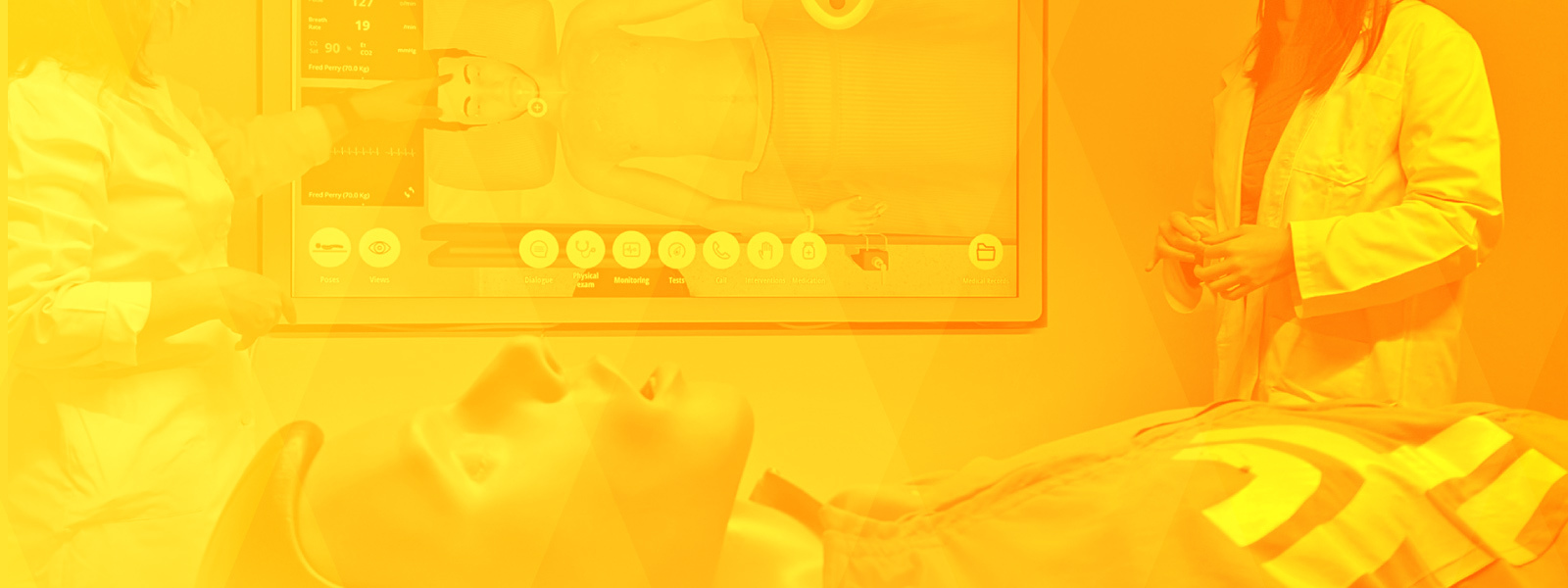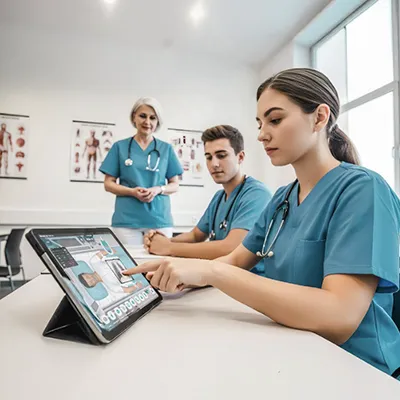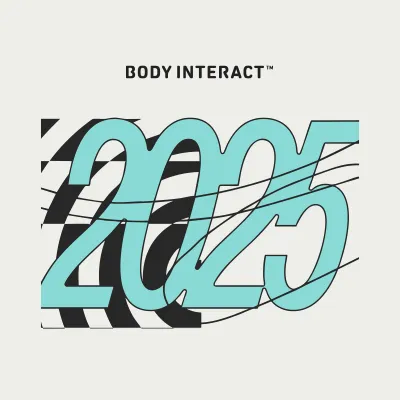Tele-Simulation with Body Interact Virtual Patients
The world is becoming increasingly interconnected and globalization is a driving force behind many sectors, including education. Tele-Simulation using Body Interact – Virtual Patient Simulator can act as a bridge between students and teachers from different countries, fostering cross-cultural exchange and promoting diversity in the learning process. This collaboration enables students and teachers to gain insights into the healthcare practices, challenges and perspectives from various parts of the world, ultimately creating well-rounded and culturally aware healthcare professionals.
In the 5th Community for Body Interact in Japan (CBIJ) meeting, Prof. Leila Sales and Prof. Ichiro Kaneko highlighted this opportunity for teaching and learning and showed the audience how to implement it in a short demonstration. While exploring the implementation and benefits of Simtegration – combining virtual patients with other simulation tools, both came to the conclusion that not only tele-simulation is possible but also Tele-Simtegration.
Students and educator role at a Tele-Simtegration exercise
Simtegration can be defined as combining Body Interact with other simulation resources such as task trainers, manikins or standardized patients. This approach can help students develop hard and soft skills in a controlled and safe environment. In this way when solving a clinical scenario on Body Interact, users are able to pause the scenario anytime and perform the same interventions on the adequate simulation resource.
This concept may evolve into Tele-Simtegration as it is performed online and worldwide.
During the meeting, Prof. Ichiro Kaneko was playing the role of the student by solving a Body Interact scenario in the simulation centre where the conference was being hosted. While in Portugal, Prof. Leila Sales could see what he was doing and also provide feedback on his performance, such as a professor. During the scenario performance, it was assessed the clinical history of the patient to perform, as well as perform a physical examination of a patient suffering from an ST-elevation myocardial infarction.
All parts of a simulation session can be performed with this teaching approach: briefing, simulation and debriefing. All it required was being connected through an online meeting platform.
The Simulation Center also had cameras around the manikin and screen so Prof. Leila could keep track of what the student was doing in real time. On the other side, there was another screen displaying Prof. Leila’s zoom box so the student could hear and see the professor while performing under the watchful eye.
Impact of digitally combining Virtual Patients and Simulation tools on global learning
The integration of tele-simtegration lessons using Body Interact in Healthcare Education has the potential to revolutionize global learning in the following ways:
- Knowledge exchange
- Skills development
- Advancement of Healthcare Research
- Global health improvement
- Evolution of pedagogical methods
Can Tele-Simtegration approach be the future of Healthcare Education?
Here’s some reasons why:
- Enhanced Learning Opportunities
- Cost-effectiveness
- Flexibility and Accessibility
- Collaboration and Networking
By fostering cultural exchange, enhancing learning opportunities and breaking down geographical barriers, this innovative approach has the potential to create a generation of healthcare professionals who are not only competent but also globally aware and culturally sensitive.
Get to know the speakers

Professor Leila Sales is the current President of the Pedagogical Council and Director of the Nursing Teaching Area of the Portuguese Red Cross Higher School of Health in Lisbon. She is a Nurse Specialist in Medical-Surgical Nursing, with a Master’s in Nursing and a PhD in Nursing with a Specialization in Health Unit Management and Nursing Services in the area of Patient and Medication Safety.

Prof. Ichiro Kaneko is currently an Associate Professor at the Department of Emergency Medicine at the School of Medicine, at Teikyo University, in Tokyo, Japan. He is also the coordinator of the Teikyo Simulation Education Research Center.
By Carolina Ferreira – Customer Trainer | Registered Nurse









